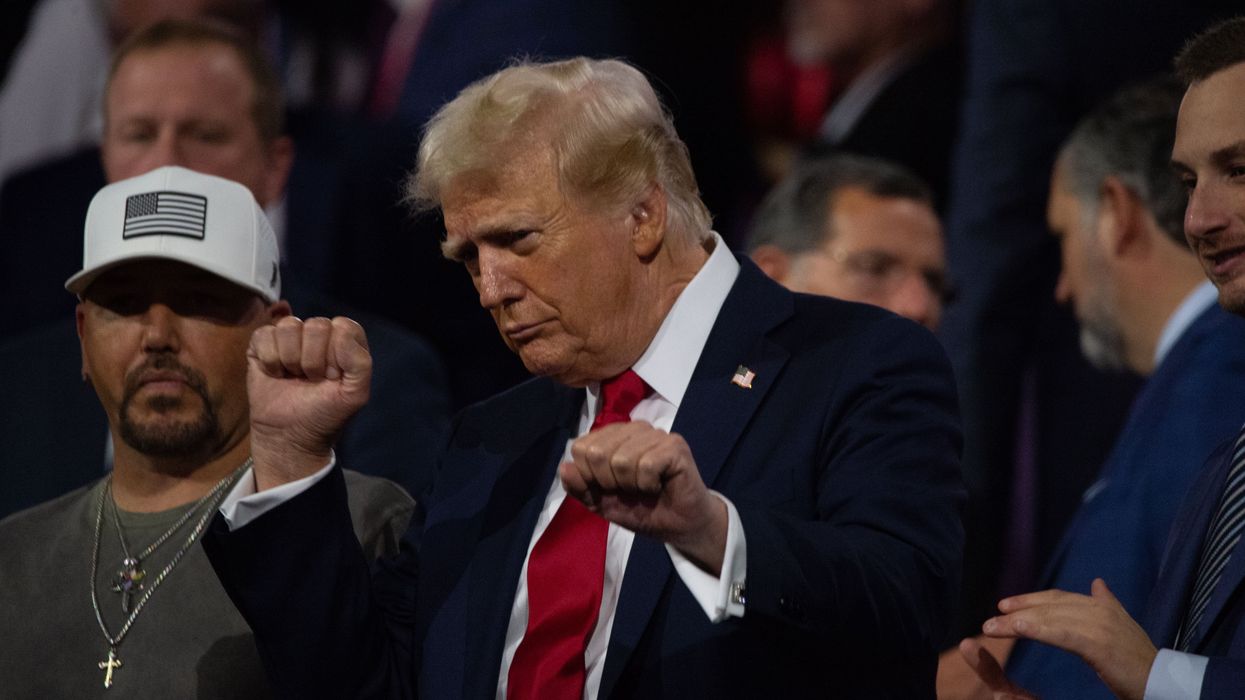J ohnson is a United Methodist pastor, the author of "Holding Up Your Corner: Talking About Race in Your Community" and program director for the Bridge Alliance, which houses The Fulcrum.
In the wake of the attempted assassination of former President Donald Trump and the shadow of the Republican National Convention, a stark reality confronts us: Our national discourse is a ticking time bomb, urgently in need of defusing. The incendiary rhetoric, the vitriol, the escalating violence — these are not just political issues but profound moral crises.
As a nation, we stand at a precipice, and the choice before us is consequential: We can continue down the path of hatred and division, or we can chart a new course guided by respect, empathy and the fundamental dignity of every human being.
Let us be clear: This is not a partisan issue. The poison of "whataboutism," projection and false equivalencies, dishonest debate, and gaslighting infects us all, regardless of our political stripes. It is a cancer that eats away at the heart of our democracy, turning our public square into a battleground and our fellow citizens into enemies.
We see it in how we debate, with minds already made up and ears closed to opposing views. We see it in the way we treat those who disagree with us, not as fellow Americans with differing opinions but as threats to be defeated. We see it in how we excuse the worst excesses of our side while magnifying the flaws of the other. These practices are not merely a political problem but a profound moral failure. It is a corruption of the soul, a hardening of the heart, a closing of the mind. And it demands not just a political response but an ethical one.
We must ask ourselves how we engage with those who see the world differently. Do I seek to understand or merely to triumph? Do I speak to illuminate or to obscure? Do I see a brother, sister, a human or an enemy to defeat in my fellow citizen? These questions will determine not just the future of our politics but the health of our souls.
As a Christian cleric, I am compelled by the teachings of my faith to speak out against injustice, to stand with the marginalized and to call my fellow believers to account. The prophets of old did not mince words when confronted with wrongdoing, nor can I. But this is not merely a religious imperative. It is a call to our shared humanity that transcends religious boundaries. Whether we identify as people of faith or not, we all intuitively understand the power of words. We remember the schoolyard taunts that cut to the bone, the words of encouragement that lifted our spirits, the voices of hatred that sparked violence and the speeches that inspired us to greatness.
Words are not neutral; they carry the power to heal, to harm, to build or to tear down. And in a society as diverse and fractured as ours, the words we choose, the rhetoric we embrace, carry the weight of life and death. Words can inflame our differences, turning our fellow citizens into enemies. They can either dehumanize and degrade or uplift and inspire. They can be tools of division or instruments of peace. And so we must choose our words carefully, aware of their power. We must speak with honesty, integrity, compassion and respect.
For instance, when we call out injustice, we should do so in a way that humanizes rather than demonizes. We should express our convictions with passion and remain open to persuasion in debates. And we must always remember that the words we speak and the rhetoric we embrace reflect not just our politics but our character. Thus, it is essential that we employ speech and messaging that reflects the best of our humanity rather than the worst. Only by communicating in such a manner can we hope to build a nation worthy of its highest ideals.
We often boast of the need for national unity. Still, unity is a hollow shell without the virtues that make it possible: empathy, respect and a commitment to the inherent worth and dignity of every human being. We must strive not merely to be a unified nation but to be a better people committed to the ideals of liberty and justice. And when we say "all," we mean all — without qualification, without exception.
The road ahead will be challenging, but it also holds the promise of transformation. It will demand courage, humility and a willingness to confront our failings. It will require us to listen when we would rather shout and to seek understanding when we would rather condemn. But it is the only path forward, the only way to break the cycle of hatred and build a society worthy of our highest ideals. The potential for positive change is within our grasp, and we must realize it.
We all share the collective responsibility of healing, bridge-building and forging a democracy. Honoring such a commitment is not just political necessity, but a moral and spiritual imperative. So start with the person in front of us, the colleague beside us, the stranger on the street. Engage with those who see the world differently, not with suspicion and hostility, but with curiosity and respect. In the future, we may listen as much as we speak and seek to understand more than persuade. Remember that every face we meet mirrors our humanity and deserves dignity and respect. Only by such small but steady acts can we hope to build a nation worthy of our highest ideals. The choice is ours. America chooses wisely.




















Trump & Hegseth gave Mark Kelly a huge 2028 gift